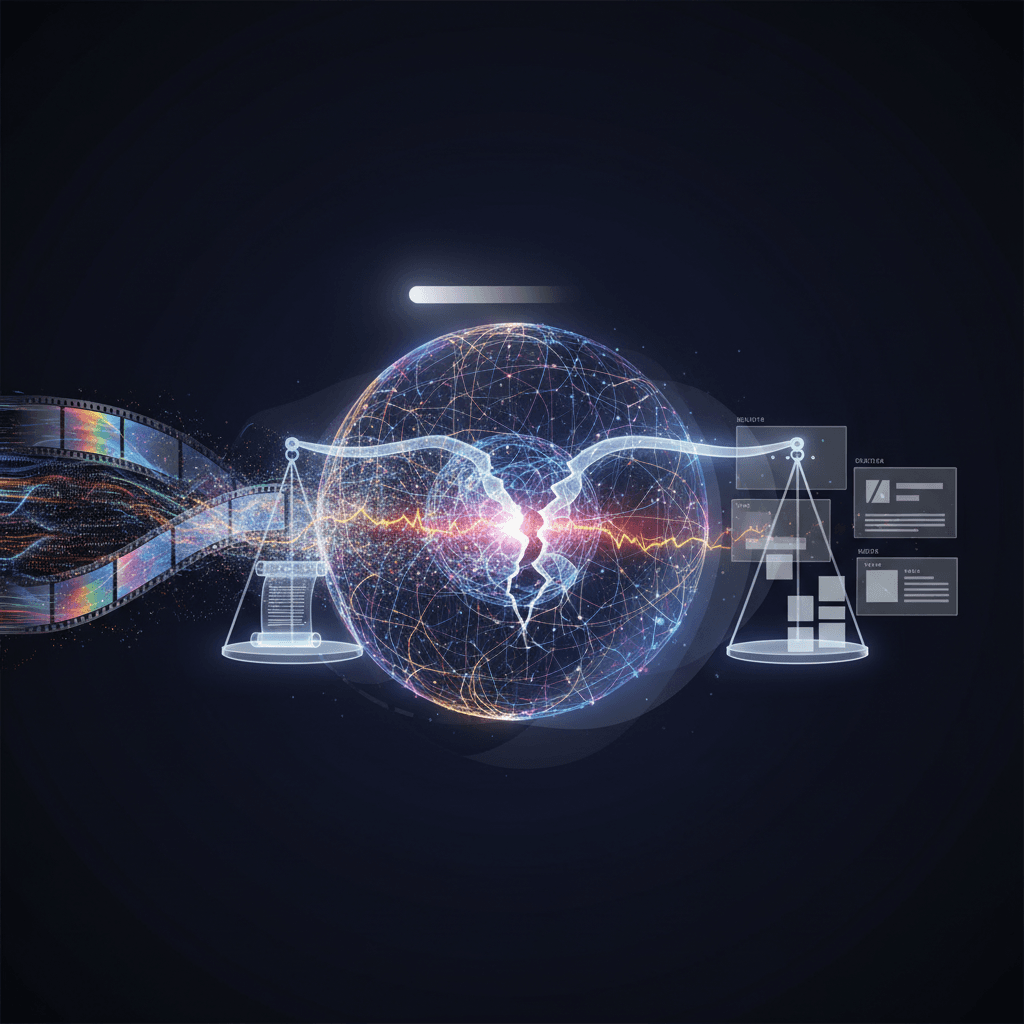Google's NotebookLM: AI Video Summaries Ignite Copyright Clash
Google's AI-powered video summaries redefine fair use, putting intellectual property rights at the forefront of AI's next frontier.
November 13, 2025

A new feature in Google's artificial intelligence-powered research tool, NotebookLM, is intensifying the already heated debate surrounding AI and intellectual property rights. The tool now allows users to generate video summaries from uploaded sources, including publicly accessible YouTube videos, using custom text prompts.[1][2] This increased flexibility, while designed to enhance research and learning, also opens the door to more nuanced and potentially widespread copyright infringement, blurring the lines between fair use and the creation of derivative works. The development places Google at the center of a complex legal and ethical dilemma that questions the very foundation of copyright law in the age of generative AI.
Google's NotebookLM is designed as a personalized AI research assistant, capable of summarizing, analyzing, and synthesizing information from various sources provided by the user, such as documents, websites, and now, more significantly, video content from platforms like YouTube.[3][4][5] The tool works by processing the text transcripts of these videos.[4][6] The latest update moves beyond preset summary styles, offering users the ability to direct the AI with specific instructions or "steering prompts" to create customized video overviews.[1][2] For example, a user could upload a feature-length documentary and instruct NotebookLM to generate a short video explaining a specific concept in the style of a different creator or for a particular audience.[1] This functionality, which transforms existing content into a new format based on user commands, is where the potential for copyright issues becomes particularly pronounced. The AI-generated videos are composed of AI-narrated slides that can pull images, diagrams, quotes, and data directly from the source materials.[1]
At the heart of the controversy is the legal concept of "derivative works." Copyright law grants the original creator the exclusive right to produce or authorize the production of new works based on their original content. A summary, in itself, is not always a copyright violation, often falling under the doctrine of "fair use." However, the highly customizable and transformative nature of NotebookLM's video summaries complicates this. When a user prompts the AI to create a new video that adopts a specific narrative style, focuses on particular elements of the original work, and presents it in a new visual and auditory format, the resulting output could be considered a new creative work derived from the original, thereby potentially infringing on the copyright holder's rights.[7][8] The ease with which this can be accomplished—requiring only a few clicks and a text prompt—lowers the barrier to creating such derivative content, leading to concerns about "casual" or unintentional infringement on a massive scale.
The broader context of this development is the ongoing legal and philosophical battle between tech giants and content creators over the use of copyrighted material to train AI models.[9][10][11] Companies like Google have argued that using publicly available data for training purposes constitutes fair use, a necessary step for technological innovation.[12][13][14] Conversely, creators, artists, and publishers contend that this practice amounts to unauthorized use of their intellectual property, and they have filed numerous lawsuits against AI companies.[11][15][16][17][18] Google itself is facing legal challenges over the training of its AI models, with plaintiffs alleging that their copyrighted works were used without permission.[15][16][17] The introduction of powerful, user-directed tools like the enhanced NotebookLM adds another layer to this conflict, shifting the focus from the training of AI models to the nature of their outputs and the potential for these tools to be used for infringing activities by the end-user. The question of liability in such cases is also a gray area, with potential responsibility falling on the user who provides the prompt, the AI company that provides the tool, or both.[19]
In conclusion, while Google's advancements in NotebookLM offer powerful new ways to interact with and understand information, they also bring to the forefront the urgent need for clearer legal frameworks governing AI and copyright. The ability for anyone to effortlessly create customized video summaries of copyrighted content represents a significant step in the evolution of generative AI, but it also underscores the technology's potential to disrupt long-standing intellectual property laws. As AI tools become more sophisticated and accessible, the distinction between transformative use and infringement will become increasingly difficult to discern, creating a complex challenge for creators, tech companies, and the legal system alike. The resolution of these issues will likely have a profound and lasting impact on the future of both creativity and technological innovation.
Sources
[1]
[3]
[4]
[5]
[6]
[8]
[9]
[11]
[12]
[13]
[14]
[15]
[16]
[17]
[18]
[19]